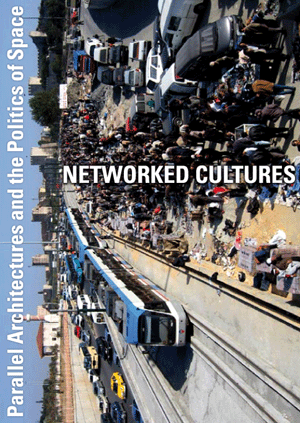_loginregistrieren_database_5 Factories - Worker Control in Venezuela Dario Azzellini & Oliver Ressler _ALMOSTREAL ECF _AnArchitektur Jesko Fezer _Arizona Road Azra Aksamija _Balkan Konsulat rotor _Bata-ville: We are not afraid of the future Nina Pope + Karen Guthrie / www.somewhere.org.uk _Black Benz Race krcf in collaboration with Felix Stalder, Arben Gecaj, Faton Topalli and Osman Osmani _Black Sea Files Ursula Biemann _Camp La Jolla Military ParkOwen Mundy _CHANGE REALITY: Renaming the Streets of Zagreb REINIGUNGSGESELLSCHAFT _Conceptual Paradise. There is a place for sophistication Stefan Roemer _de-regulation Irit Rogoff, Kutlug Ataman, Stefan Roemer_news ____________Bloomberg SPACE, London ____________Kumu Art Museum Tallinn ____________Open Space, Open Systems - Vienna ____________CAA 2011 Conference, New York ____________Forum Stadtpark, Graz ____________Symposium, Istanbul ____________lungomare, Bozen/Bolzano ____________Metropolis Biennale 2007-17, Copenhagen ____________new publication available now ____________Mestna Galerija, Ljubljana ____________Livestream of Networked Cultures documentary ____________ |
_Databaseproject: Balkan Konsulat location: Graz  date: 2002-10-01 info: For one and a half years, < rotor >, an association for contemporary art, became the "Balkan Konsulat". |
_broadcasts_conversations+ Ana Dzokic and Marc Neelen+ Ayreen Anastas and Rene Gabri + atelier d'architecture autogérée (aaa) + Asya Filippova + Sophie Hope and Sarah Carrington + Branca Curcic + Christoph Schaefer + Campement Urbain + Claudia Zanfi + Despoina Sevasti and Poka-Yio + Erden Kosova + Helmut Batista _textsRadio as Spatial Practiceby: Paulo Tavares Survival Kits: Artistic Responses to Globalizationby: Marga van Mechelen What Ever Happened to Cultural Democracy?by: Sophie Hope I don't know how to explain ...by: Anca Gyemant Trading Placesby: Peter Moertenboeck & Helge Mooshammer Milosevic as Architectby: Srdjan Jovanovic Weiss When the Unavoidable Knocks at the Door ...by: Gulsen Bal Tracing Translocality: The BlackBenz Raceby: Felix Stalder travelling lexicon towards a global positioning systemby: Celine Condorelli |